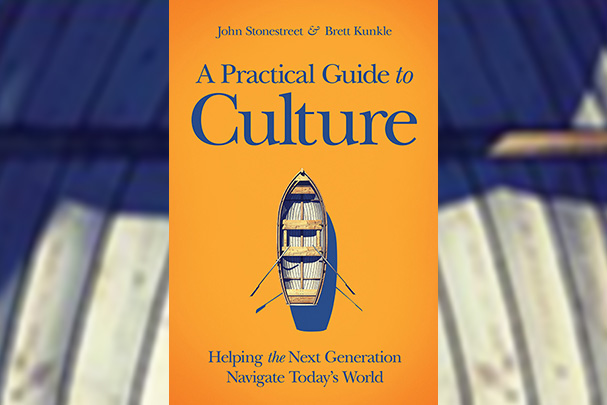The full text of this article in PDF format can be obtained by clicking here. For further information about the CHRISTIAN RESEARCH JOURNAL, click here.
I’m a Southern California surfer, and I love the ocean. But surfing has taught me that the ocean can be a powerful and punishing place. When I paddle out into the lineup, I’ve had to learn how to navigate the waves I can clearly see in front of me. When I don’t maneuver carefully, I get pounded. However, I’ve also had to learn what the ocean is doing underneath me, as well. The undercurrents are not as easily detectable, and sometimes I’m entirely unaware of what’s happening below the surface until it’s too late and find myself in the middle of trouble.
In the same way, there are powerful cultural “waves” that are very visible and pound away at the Christian worldview. Gender identity. LGBTQ issues. Substance abuse. Casual sex. Consumerism. Pornography. Racial tension. Entertainment. These issues are on display all around us. They dominate news headlines, drive social media hashtags, and occupy much of the cultural conversations. For example, LGBTQ issues have been fleshed out in the Supreme Court’s Obergefell decision on same-sex marriage. The gender identity issue has resulted in laws mandating gender neutral bathrooms. Entertainment pounds away with each set of lewd and demeaning lyrics.
And Christians need to navigate each cultural wave. We must view each issue in light of biblical truth and then engage it in our homes, churches, communities, and in the larger culture. However, these visible cultural waves often occupy most of our efforts, while the cultural undercurrents go unaddressed. So while we may have our apologetic arguments prepared and ready on homosexuality and same-sex marriage, the cultural undercurrents pose another threat. As C. S. Lewis said, “The most dangerous ideas in a society are not the ones that are being argued, but the ones that are assumed.” In our book, A Practical Guide to Culture: Helping the Next Generation Navigate Today’s World, John Stonestreet and I identify four powerful contemporary undercurrents that Christians cannot allow to go unaddressed.
First, we must navigate the information age. We will encounter more information daily than someone living just a few centuries ago might encounter in an entire lifetime. Of course, information communicates ideas, and ideas have consequences. Yet, we hardly recognize this daily information inundation that subtly and powerfully shapes hearts and minds. Slowly, access to information has replaced the pursuit of wisdom, and we ignore this cultural tide to our own peril, and to that of our children.
A second undercurrent is the culture’s understanding of identity. Underneath the visible moral shifts in the sexual views of our culture is the less perceptible issue of human identity. What does it mean to be human? The cultural tide has slowly but dramatically turned, such that we celebrate sexuality as a core human identity. Christians must identify this shriveled-up view of human dignity and contrast it with the truth, goodness, and beauty of the imago dei found only in the Christian worldview.
Third, an entire generation is being pulled under by the undercurrent of technology. The typical eight- to eighteen-year-old spends more than seven and half hours per day in front of some kind of screen: the television, smart phone, laptop, or tablet. Technology is omnipresent, and the vast majority of people — from the student addicted to their smartphone to the family dining out together yet not talking to one another because they’re staring at screens instead — barely recognize this fact. But there are tremendous consequences when much of our lives are lived in front of glowing rectangles. For Christians who understand the crucial role of relationships in God’s created order, we must identify how technology causes us to lose touch with one another and even ourselves. We must reframe technology with the two Great Commandments and ask, “How can I use technology in such a way that it helps me to love God and my neighbor better?”
The last cultural undercurrent is the death of the grown-up and the corresponding celebration of perpetual adolescence. Somewhere along the way, we ceased to be a culture where kids aspired to be adults. Now, arriving at and remaining in adolescence is the goal. To see this, simply contrast the portrayal of adults in television and movies from yesteryear with contemporary depictions in sitcoms like Modern Family or movies like The Hangover. The church must confront and engage this forceful cultural undercurrent. Kids and adults who wallow in adolescence won’t be men and women who seek after virtue and stand against injustice.
If Christians are going to effectively engage today’s culture, we must be culturally savvy and engage both the seen and unseen elements all around us. Only then can we “demolish” the cultural “arguments” that set themselves up “against the knowledge of God” (2 Cor. 10:5) and in contrast, proclaim the truth and hope of the gospel.









